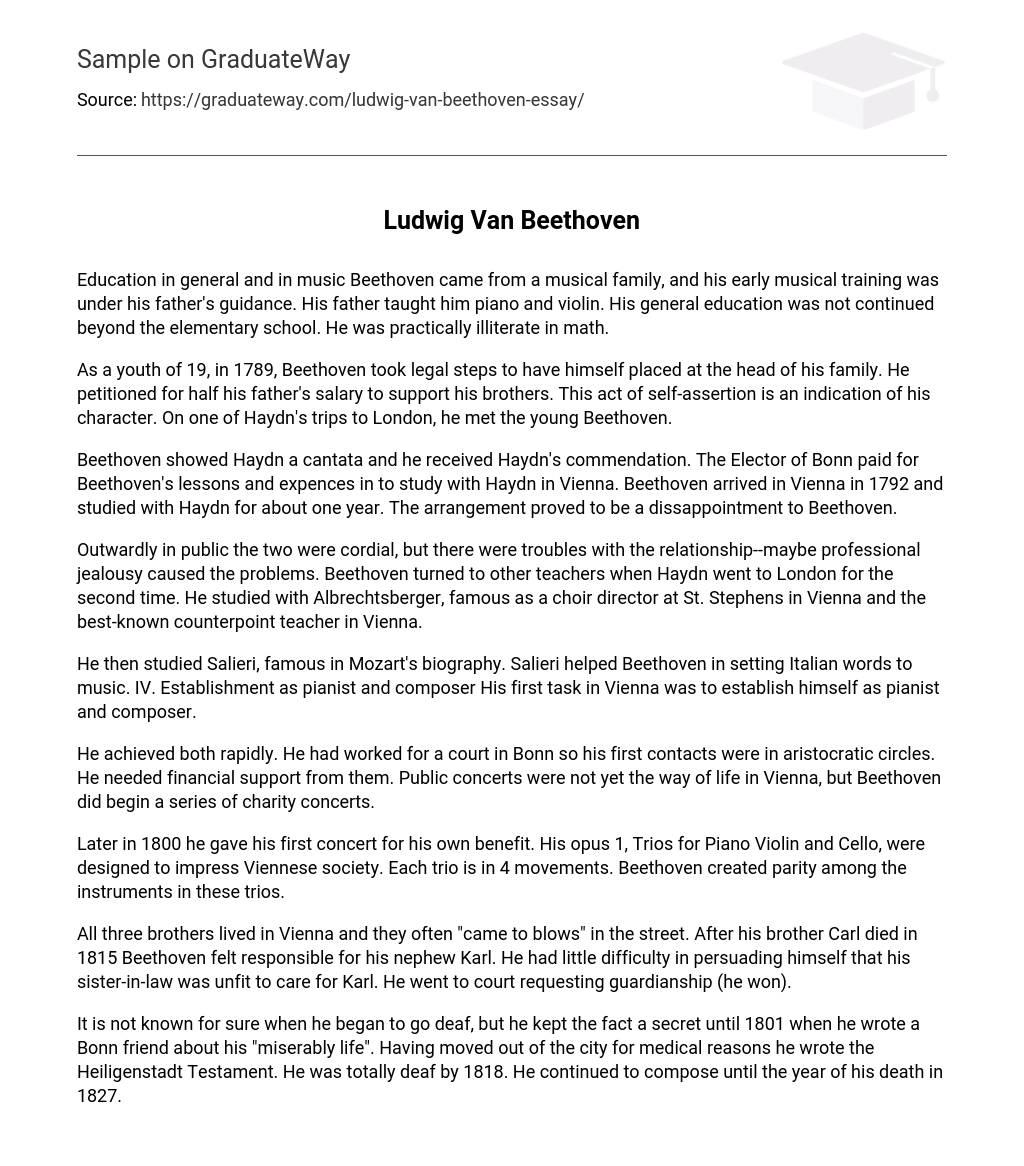Beethoven’s education, particularly in music, greatly influenced his life. Raised in a family with deep musical connections, he received initial instruction on the piano and violin from his father. Unfortunately, Beethoven’s formal schooling only reached elementary level, resulting in difficulties with mathematics.
At the age of 19 in 1789, Beethoven sought legal measures to become the head of his family, requesting half of his father’s salary to assist his siblings. This brave action reflects his strong personality. During one of Haydn’s journeys to London, he encountered the aspiring Beethoven.
Beethoven presented a cantata to Haydn, who praised it. The Elector of Bonn funded Beethoven’s lessons and expenses to study with Haydn in Vienna. Beethoven arrived in Vienna in 1792 and spent approximately one year studying under Haydn. Unfortunately, this arrangement ended up being disappointing for Beethoven.
Despite maintaining a cordial facade in public, there were underlying difficulties in their relationship, potentially stemming from professional jealousy. When Haydn embarked on his second trip to London, Beethoven sought instruction from other teachers. Among them was Albrechtsberger, renowned for his role as a choir director at St. Stephens in Vienna and his reputation as the city’s foremost counterpoint teacher.
He then examined Salieri, who is renowned in Mozart’s biography, as he assisted Beethoven in composing music with Italian lyrics. IV. Establishing himself as a pianist and composer was Beethoven’s initial objective upon arriving in Vienna.
Beethoven quickly achieved both. Having previously worked for a court in Bonn, his initial connections in Vienna were with aristocrats, from whom he also sought financial assistance. Although public concerts were not yet prevalent in Vienna, Beethoven did establish a series of charity concerts.
Later in 1800, Beethoven performed his first concert for his own benefit, showcasing his opus 1 which consisted of Trios for Piano, Violin, and Cello. These trios were specifically created to make a lasting impression on the Viennese society. Notably, each trio is composed of 4 movements, with Beethoven ensuring equality between the instruments used.
Living in Vienna, all three brothers frequently engaged in street fights. However, when his brother Carl passed away in 1815, Beethoven took on the responsibility for his nephew Karl. He easily convinced himself that his sister-in-law was incapable of raising Karl. Beethoven then sought guardianship through the court, and ultimately succeeded.
The exact date of when he first started losing his hearing remains uncertain, but he concealed this fact until 1801 when he confided in a friend from Bonn, expressing his dissatisfaction with his life. Upon leaving the city for medical reasons, he penned the Heiligenstadt Testament. By 1818, he had completely lost his hearing. Nevertheless, he persisted in composing until his passing in 1827.





